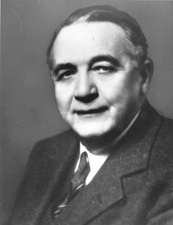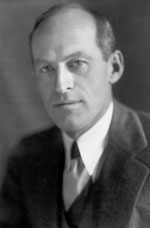United States Senate elections, 1944 on:
[Wikipedia]
[Google]
[Amazon]
The 1944 United States Senate elections coincided with the



 Republican Henry Cabot Lodge Jr. resigned February 3, 1944, to return to active duty in the
Republican Henry Cabot Lodge Jr. resigned February 3, 1944, to return to active duty in the
 The Socialist Labor state convention met on April 2 at the Cornish Arms Hotel, the corner of Eighth Avenue and Twenty-eighth Street, in
The Socialist Labor state convention met on April 2 at the Cornish Arms Hotel, the corner of Eighth Avenue and Twenty-eighth Street, in


re-election
The incumbent is the current holder of an office or position, usually in relation to an election. In an election for president, the incumbent is the person holding or acting in the office of president before the election, whether seeking re-ele ...
of Franklin D. Roosevelt
Franklin Delano Roosevelt (; ; January 30, 1882April 12, 1945), often referred to by his initials FDR, was an American politician and attorney who served as the 32nd president of the United States from 1933 until his death in 1945. As the ...
to his fourth term as president
President most commonly refers to:
*President (corporate title)
* President (education), a leader of a college or university
* President (government title)
President may also refer to:
Automobiles
* Nissan President, a 1966–2010 Japanese ...
. The Democrats retained their large majority, although they lost a net of one seat to the Republicans.
Results summary
''Colored shading indicates party with largest share of that row.'' Source: Clerk of the U.S. House of RepresentativesGains, losses, and holds
Retirements
One Republican and five Democrats retired instead of seeking re-election.Defeats
Four Republicans and five Democrats sought re-election but lost in the primary or general election.Change in composition
Before the elections
At the beginning of 1944.Election results
Race summaries
Special elections during the 78th Congress
In these special elections, the winner was seated during 1944 or before January 3, 1945; ordered by election date.Races leading to the 79th Congress
In these general elections, the winners were elected for the term beginning January 3, 1945; ordered by state. All of the elections involved the Class 3 seats.Alabama
Arizona
Three-term Democrat Carl T. Hayden was easily re-elected. Hayden would be re-elected three more times before retiring in 1962.Arkansas
California
Colorado
Connecticut
Florida
Georgia
Idaho
Illinois

Indiana
There were 2 elections in Indiana, due to the January 25, 1944, death of Democrat Frederick Van Nuys. Democrat Samuel D. Jackson was appointed to continue the term, pending a special election. Republican William E. Jenner won the special election to finish the term, and Republican Homer E. Capehart won the general election to the next term.Indiana (special)
Indiana (regular)
Iowa
Kansas
Kentucky
Louisiana

Maryland

Massachusetts (special)
 Republican Henry Cabot Lodge Jr. resigned February 3, 1944, to return to active duty in the
Republican Henry Cabot Lodge Jr. resigned February 3, 1944, to return to active duty in the U.S. Army
The United States Army (USA) is the land service branch of the United States Armed Forces. It is one of the eight U.S. uniformed services, and is designated as the Army of the United States in the U.S. Constitution.Article II, section 2, cl ...
during World War II
World War II or the Second World War, often abbreviated as WWII or WW2, was a world war that lasted from 1939 to 1945. It involved the vast majority of the world's countries—including all of the great powers—forming two opposing ...
. Republican Sinclair Weeks
Charles Sinclair Weeks (June 15, 1893February 7, 1972), better known as Sinclair Weeks, served as United States Senator from Massachusetts (1944) and as United States Secretary of Commerce from 1953 until 1958, during President Eisenhower's adm ...
was appointed February 8 to continue the term until an election was held. A special election was held on November 7 with Republican
Republican can refer to:
Political ideology
* An advocate of a republic, a type of government that is not a monarchy or dictatorship, and is usually associated with the rule of law.
** Republicanism, the ideology in support of republics or agains ...
Massachusetts Governor
The governor of the Commonwealth of Massachusetts is the chief executive officer of the government of Massachusetts. The governor is the head of the state cabinet and the commander-in-chief of the commonwealth's military forces.
Massachuset ...
Leverett Saltonstall defeating his challengers. He didn't take office until January 4, 1945, when his term as Governor ended.
Missouri
Nevada
New Hampshire
New Jersey (special)
New York
 The Socialist Labor state convention met on April 2 at the Cornish Arms Hotel, the corner of Eighth Avenue and Twenty-eighth Street, in
The Socialist Labor state convention met on April 2 at the Cornish Arms Hotel, the corner of Eighth Avenue and Twenty-eighth Street, in New York City
New York, often called New York City or NYC, is the most populous city in the United States. With a 2020 population of 8,804,190 distributed over , New York City is also the most densely populated major city in the Un ...
. They nominated Eric Hass for the U.S. Senate. At that time, the party used the name "Industrial Government Party" on the ballot, but was also referred to as the "Industrial Labor Party".
The Liberal Party
The Liberal Party is any of many political parties around the world. The meaning of ''liberal'' varies around the world, ranging from liberal conservatism on the right to social liberalism on the left.
__TOC__ Active liberal parties
This is a li ...
was organized by a state convention with about 1,100 delegates who met on May 19 and 20 at the Roosevelt Hotel in New York City
New York, often called New York City or NYC, is the most populous city in the United States. With a 2020 population of 8,804,190 distributed over , New York City is also the most densely populated major city in the Un ...
. They endorsed the incumbent Democratic U.S. Senator Robert F. Wagner for re-election. The party filed a petition to nominate candidates which was allowed by Secretary of State Curran on August 25.
The Republican
Republican can refer to:
Political ideology
* An advocate of a republic, a type of government that is not a monarchy or dictatorship, and is usually associated with the rule of law.
** Republicanism, the ideology in support of republics or agains ...
State Committee met on August 8 at Albany, New York
Albany ( ) is the capital of the U.S. state of New York, also the seat and largest city of Albany County. Albany is on the west bank of the Hudson River, about south of its confluence with the Mohawk River, and about north of New York C ...
. They nominated Secretary of State Thomas J. Curran for the U.S. Senate.
The Democratic State Committee met on August 8 at the National Democratic Club at 233, Madison Avenue in New York City
New York, often called New York City or NYC, is the most populous city in the United States. With a 2020 population of 8,804,190 distributed over , New York City is also the most densely populated major city in the Un ...
. They re-nominated the incumbent U.S. Senator Robert F. Wagner.
The American Labor state convention met on August 10. They endorsed the Democratic nominee Wagner.
The Democratic/American Labor/Liberal ticket was elected and incumbent Wagner was re-elected.
North Carolina
North Dakota
Ohio
Oklahoma
Oregon
Oregon (special)
Oregon (regular)
Incumbent Republican Rufus C. Holman ran for re-election, but was defeated in the Republican primary by Wayne Morse.Pennsylvania
South Carolina

South Dakota
Utah
Incumbent Democratic SenatorElbert D. Thomas
Elbert Duncan Thomas (June 17, 1883February 11, 1953) was a Democratic Party politician from Utah. He represented Utah in the United States Senate from 1933 until 1951. He served as the Chair of the Senate Education Committee.
Biography
Thomas ...
won a third term. As of 2022, this is the last time that a Democrat was elected to Utah's class 3 Senate seat.
Vermont

Washington
Wisconsin
See also
* 1944 United States elections **1944 United States presidential election
The 1944 United States presidential election was the 40th quadrennial presidential election. It was held on Tuesday, November 7, 1944. The election took place during World War II. Incumbent Democratic President Franklin D. Roosevelt defeated ...
**1944 United States gubernatorial elections
United States gubernatorial elections were held in 1944, in 32 states, concurrent with the House, Senate elections and presidential election, on November 7, 1944 (September 11 in Maine).
This was the last time Idaho elected its governors to 2- ...
** 1944 United States House of Representatives elections
The 1944 United States House of Representatives elections were elections for the United States House of Representatives in 1944 that coincided with President Franklin D. Roosevelt's re-election to a record fourth term.
Roosevelt's popularity al ...
* 78th United States Congress
The 78th United States Congress was a meeting of the legislative branch of the United States federal government, composed of the United States Senate and the United States House of Representatives. It met in Washington, DC from January 3, 1943, ...
* 79th United States Congress
The 79th United States Congress was a meeting of the legislative branch of the United States federal government, composed of the United States Senate and the United States House of Representatives. It met in Washington, DC from January 3, 1945, ...
Notes
References
{{1944 United States elections United States home front during World War II